- 17 . 04 . 11
Our first day in Egypt takes us to the singular remaining ancient wonder of the world. There are many wonders besides.
- StumbleUpon
- TwitterTweet
- Facebook
Cairo Chaos
After the relative calm of Amman, Cairo Airport was eye-opening, hectic and chaotic. Unlike Jordanians, who seem quite calm and reserved, Egyptians appear to have little trouble expressing themselves clearly and vocally. Watching locals make their way through immigration was a little like watching Italians complaining about a missed train – all hands and gesticulations, the subtext carried in fingers and thumbs, palms and clasped hands.
The country is still somewhat destabilised, after the recent revolution, but appears safe. We haven’t met anybody who isn’t happy that Mubarak has gone (though it is perhaps unsurprising that such an unpopular view isn’t spoken aloud). Surprisingly though, a couple of well-educated Egyptians who are glad Mubarak has gone still wished that he had stayed on for a few months to co-ordinate a handover. They were convinced that he would keep his word when he said he would leave in September. In 30 years, Mubarak never lied. He cheated and he stole, but he never lied. If he said he was going to leave, he would have. The cynic in me doubts this, but there are few people the Egyptians know better than their benevolent father.
After a 30 year autocratic era with a wide streak of authoritarianism, it is natural that there has been a backlash against the rule of law. These manifest themselves in ways large and small, from the tinting of car windows, which was banned, to the casual smoking of hashish without fear of reprisal, to the wholesale flouting of traffic laws. There is little to no respect for the police, who have all but gone into hiding.
Our guide today, Ali, despaired of people’s inability to differentiate between freedom and responsibility, but in many ways it feels like the rebellious teenager acting out after the stern father has left. After three decades of having to say Yes to everything, Egyptians have discovered that they can say No and are revelling in their ability to do so. It will take some time before the pendulum swings back to a happy medium.
The people now feel powerful and are ready to exercise their power. The difficulty is when their anger is misplaced. There is no doubt in my mind that democracy is better than an autocracy with a dictator-in-all-but-name. However, the Egyptian people are going to be disappointed if they expect change to happen quickly. Giving everybody a voice inevitably slows things down. Compare China’s ability to act when it chooses to with the relative paralysis of the US Congress and Senate, where decision making ostensibly takes place transparently, with an inordinate amount of hearings, bureaucracy and compromise. It is one of the prices we pay for a (hypothetically) fair and equitable society. I wonder how the Egyptian people will cope with this Brave New World.
There are signs they aren’t prepared to be patient. They can be forgiven after waiting for so long, but must be wary of unrealistic expectations. The recent flare-ups directed at the army, who are temporarily in charge, are because elections haven’t been held quickly enough. They don’t seem to be cogniscent of the fact that even in established democracies like England, elections cannot just be put together with the snap of finger and thumb, never mind in a country that doesn’t have a constitution.
Egyptians are not currently welcome in many parts of the Middle East, being viewed with suspicion by the remaining authoritarian regimes as instigators and agitators, proponents of revolution. Muammar Gaddafi has specifically blamed the uprising in Libya on their neighbours to the East, and many Egyptians are reconsidering travel to Jordan lest they be held for questioning, or deported.
Like Jordan, Egypt is a religiously tolerant country, especially in the cities, most especially Cairo. Coptic Christians and Muslims coexist peacefully, with churches sitting beside mosques, and even different parts of the same families sometimes having different faiths. From the little I have seen, Egypt is a Muslim nation in the way that England is a Christian one; many people would identify themselves as being of the national faith, though interest has wained gradually over the years and the vast majority do not actively practice beyond what is socially expected. The burqa, considered to be so ubiquitous in The Middle East™ is actually rather rare, though I expect to see more of them outside the capital.
The history here is undeniably incredible. I had previously wondered how Egyptology could be considered a field wide enough to have its own name, but no more. In only our first day, it became clear just how rich the history of the country is, and how many artefacts have survived the ages.
The pyramids themselves are of course amazing, vast and imposing on a scale that is literally too large to comprehend up close – there are in fact 112 of them in total, though most are now ruined. In our frenetic first day, we took in the big three at Giza, the first step pyramid at Sakkara and the first straight pyramid and the curious bent pyramid at Dashour. All are remarkably well preserved. The Giza pyramids in particular were looted for their limestone to build houses and mosques in the burgeoning city, but even after that they remain monolithic. It would take a sizeable army to deconstruct them entirely – it has been calculated that the Pyramid of Cheops, the largest, contains enough material on its own to build a reasonable-sized wall around France. Perhaps if they had known this, they could have done something about the Maginot Line.
In many ways though, the pyramids pale in comparison to the treasures that were found in and around them. At the Museum of Imhotep, the scientist, doctor and architect of the first stone pyramids, later deified due to his mastery, there are dozens of items, ranging from two to four thousand years old, in an almost unbelievably immaculate state. One display for instance, held two dozen bronze statues, beautifully formed into the likenesses of gods and goddesses, seven to ten inches high and retaining all the detail of the original cast. A full mummy of a king lies partially wrapped, next to sarcophagi and death masks still resplendent after centuries. New material is found each year.
After the excitement of the city, we now head to Siwa, a small settlement 850km or so due west of Cairo. Only 30 miles from the Libyan border, Siwa is the northernmost of five major oases in the Western Desert. The region is likely to be a little more conservative, with a higher proportion of Bedouin living in a traditional lifestyle. It will be interesting to compare life there to that of Wadi Rum.
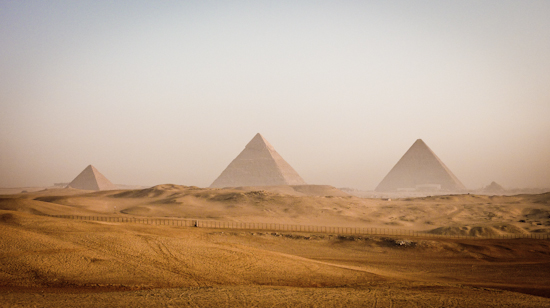
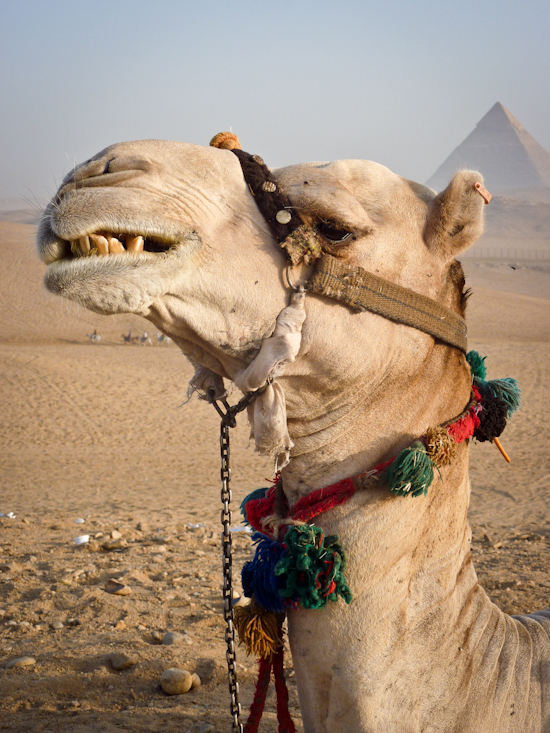
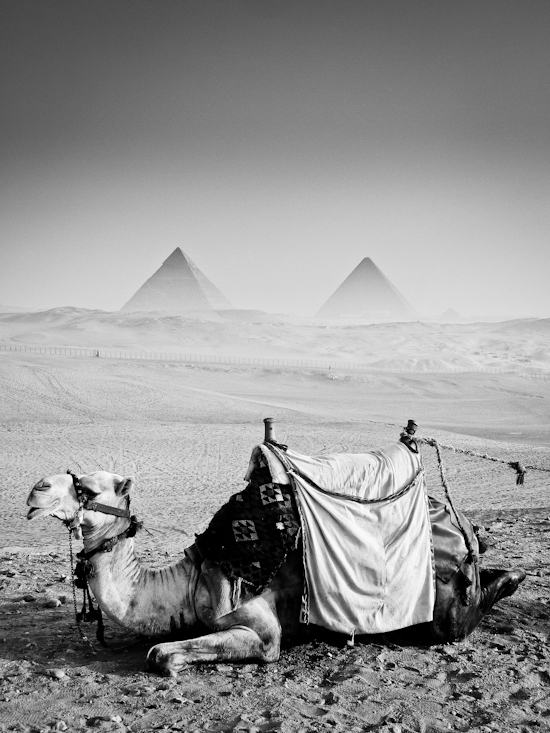
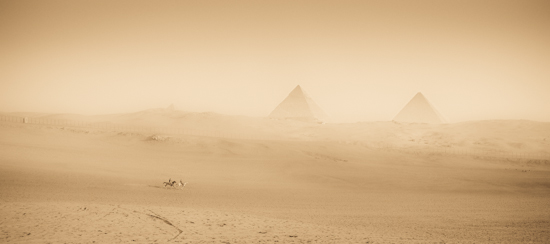
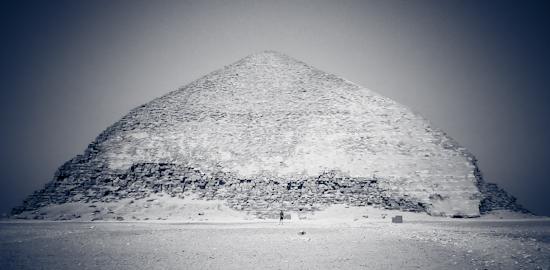
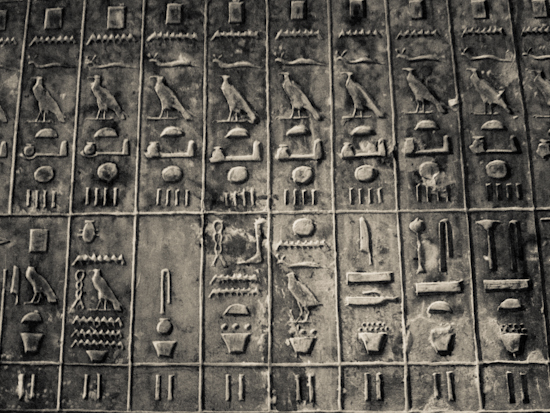
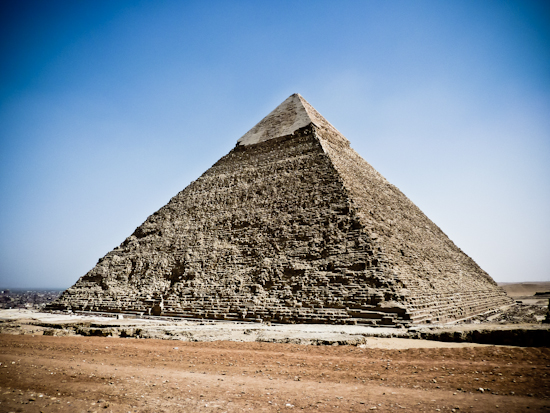
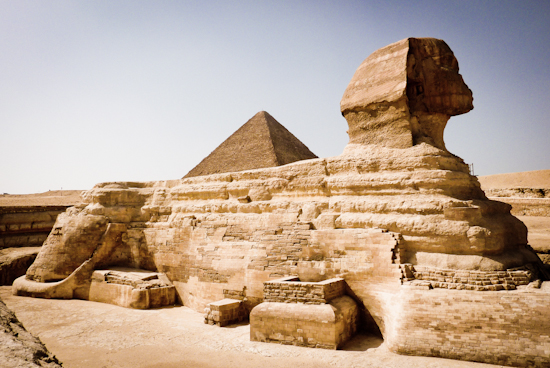
Jamie, you git. I thought I would check in on your site for the first time in ages and it turns out you’re having an amazing life. I hate you!
Always a pleasure to hear from you Rob 🙂 Back in England for most of May
if you’re around and fancy a catch-up?
Brilliant! I’m in Stirling at the moment, but any excuse for a trip back to the “leisure peninsula”. I’ve just noticed how much that sounds like a euphemism. Nice one, Wirral Borough Council… If you’ve not got my email any more I’m at Gmail: r.burriss
Very informative post, Jamie. Thanks for sharing.
And since you might end up living in San Fran, I hope you’re getting ready to experience democracy at a whole new level, with Donald Trump and Sarah Palin (among other brilliant candidates) running for president.
PS: Why is there a TM next to Middle East?
Yeah, it’s going to be an interesting race, seeing who can get the most slandering in during the primaries. I’m sure it’s not going to be pretty, which hopefully only leaves Obama looking better.
The TM is next to the Middle East as a way of highlighting that people always talk about it as a thing, rather than a disparate set of various peoples and cultures. If I could embed a spooky sound clip to play after it was read – dah dah Daahhh! – I would have done 🙂
Ha ha ha – thanks for clarifying that Jamie. 🙂
Enjoy the rest of your stay in Egypt!